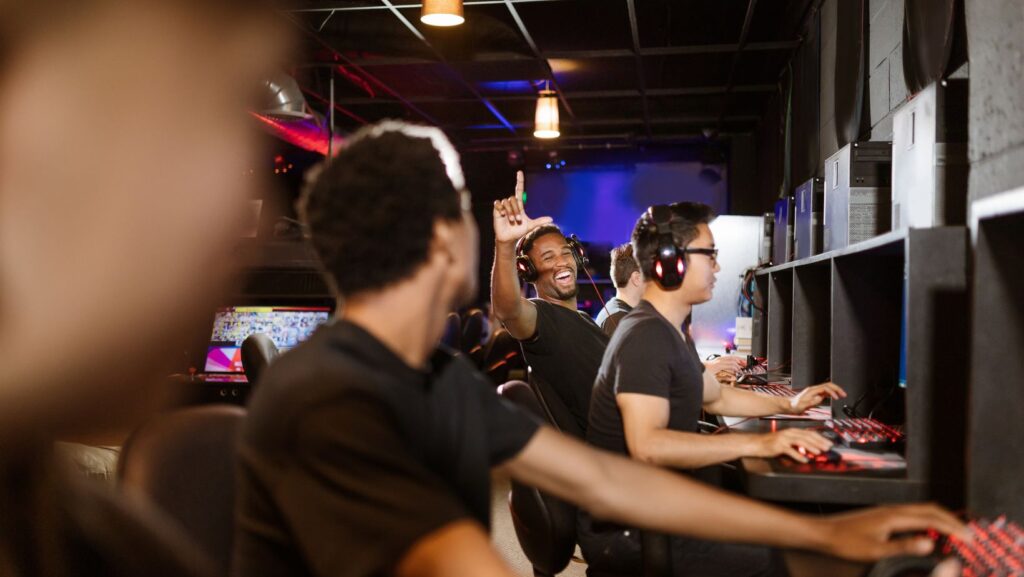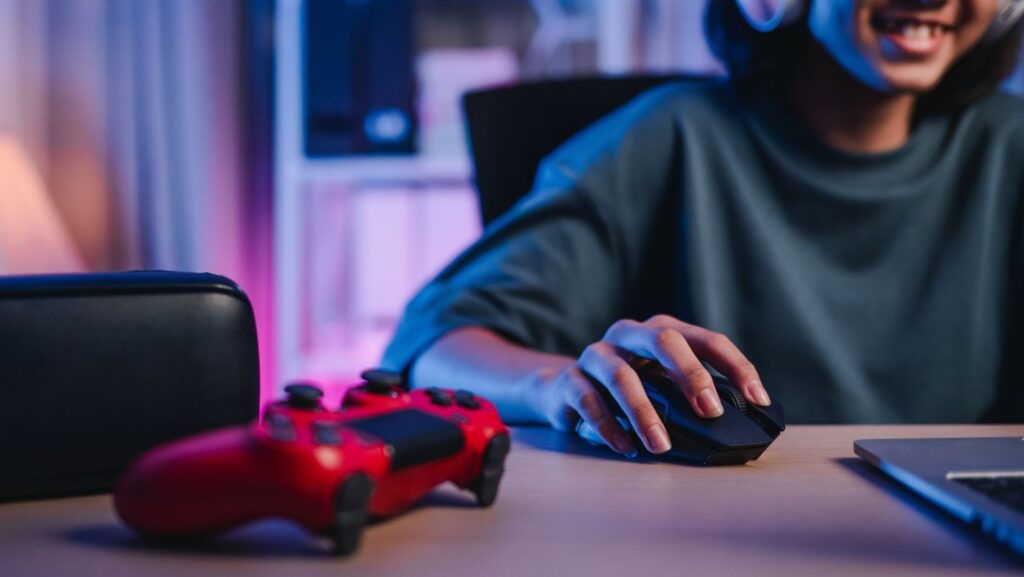As the moon ascends and the world quiets, an entirely different universe comes alive for many – the captivating world of video games. Nighttime gaming, a ritual for countless individuals worldwide, has transformed from a niche pastime into a cultural phenomenon.
This article delves into the allure of playing video games at night, exploring the unique appeal that keeps gamers glued to their screens long past sunset. Whether it’s the tranquil solitude or the thrill of an epic battle under the cover of darkness, we’ll uncover what makes these nocturnal gaming sessions so enthralling. Stay tuned for an intriguing journey into the world of nocturnal gaming.
Playing Video Games at Night
 After-hours gaming, although debated, presents a range of benefits. This section delves into the advantages of nighttime gaming, specifically focusing on stress relief, relaxation, and improvement in problem-solving skills.
After-hours gaming, although debated, presents a range of benefits. This section delves into the advantages of nighttime gaming, specifically focusing on stress relief, relaxation, and improvement in problem-solving skills.
Playing video games at night often acts as a stress-reliever for many individuals. Engaging in these digital realms, they find solace after a long day of work or school. For example, games that involve music, art, or exploration provide a calm and soothing environment, allowing players to unwind and relax. Data from the ‘American Psychological Association’, cites that 47% of players report feeling less stressed after their gaming sessions.
Playing certain types of video games at night drastically improves problem-solving skills. As attention levels peak during these hours, gamers exhibit enhanced performance in games demanding strategic planning. For instance, games such as ‘Chess’, ‘Civilization’, or ‘The Witness’ require critical decision-making under pressure. A study conducted by the ‘University of Glasgow’ reports that players engaged in these thought-intensive games demonstrate significant improvements in their cognitive abilities.
Challenges of Playing Video Games at Night
 Venturing beyond the list of benefits, we navigate the challenges of playing video games at night. Despite their appeal, nightly gaming escapades can exert several adverse effects on gamers, not least on their sleep patterns and eye health.
Venturing beyond the list of benefits, we navigate the challenges of playing video games at night. Despite their appeal, nightly gaming escapades can exert several adverse effects on gamers, not least on their sleep patterns and eye health.
Engaging in video games mars the sleeper’s rhythm significantly. Nightly gaming sessions frequently coincide with typical sleeping hours, resulting in players fighting fatigue and sleepiness while attempting complex in-game tasks. Delaying sleep due to ongoing games nudges their body clocks off balance, leading to erratic sleep patterns.
Reports from established sources, such as the National Sleep Foundation, cite that exposure to bright screens, particularly in the absence of ambient lighting, may hamper the production of sleep-inducing hormone melatonin, making it difficult for players to fall asleep. For example, individuals who play games until 2am can experience difficulties falling asleep even hours after they shut down their consoles.
Notably, regular sleep disruption from long nighttime gaming sessions can culminate in chronic sleep disorders, including insomnia. Consequently, gamers can endure constant fatigue, decreased alertness during the day, and an overall reduction in well-being.
Nighttime video gaming taxes the eyes. Gamers, immersed in the virtual world, often forget to blink, stare closely at screens, and play in poorly lit environments, all of which contribute to digital eye strain or “computer vision syndrome.” Symptoms include dry eyes, blurred vision, and headache, among others.
Best Practices for Nighttime Gaming
 Maintaining a balanced gaming routine involves being mindful of the challenges and integrating strategies to mitigate them. This section discusses crucial best practices for nighttime gaming by focusing on setting time limits and creating a comfortable environment.
Maintaining a balanced gaming routine involves being mindful of the challenges and integrating strategies to mitigate them. This section discusses crucial best practices for nighttime gaming by focusing on setting time limits and creating a comfortable environment.
Gamers must establish a cap on the amount of time they spend gaming at night. Overextending gaming sessions breaks sleep schedules and can lead to chronic sleep disorders like insomnia. For instance, maintaining a limit of 2-3 hours for a gaming session can prevent disruption of the natural sleep cycle.
It’s crucial to curate a gaming environment conducive to your comfort and well-being. To prevent visual fatigue and discomfort, optimize the lighting conditions in your gaming area. For example, using ambient lights or bias lighting behind the screen can reduce exposure to harsh blue light while maintaining visibility. Additionally, adjusting the brightness and color settings of your gaming screens contribute to a more relaxed visual experience. Remember to take regular breaks to rest your eyes and stay hydrated to prevent strain during long gaming sessions.



